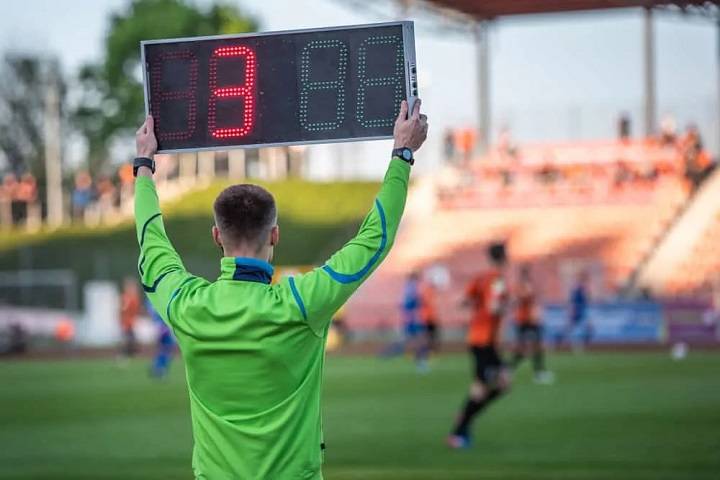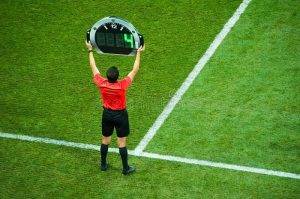In the pulsating world of soccer, where matches unfold with a symphony of skill, strategy, and passion, the concept of extra time adds a layer of drama and intensity to the beautiful game. Beyond the standard ninety minutes, extra time emerges as a pivotal juncture, where teams vie for victory, resilience is tested, and moments of brilliance etch themselves into the annals of football history. In this comprehensive exploration, we delve into the intricacies of extra time in soccer, deciphering its rules, strategic implications, and the unforgettable moments that unfold during these extended periods of play.
Unveiling the Dynamics of Extra Time
The Extension of Play Beyond Ninety Minutes
Regulation Play Recap:
Soccer matches are traditionally played in two halves, each lasting forty-five minutes, totaling ninety minutes of regulation play. However, when the score remains level at the end of this standard duration, the game proceeds to extra time—a unique phase designed to determine a winner.
Two Periods of Extra Time:
Extra time is typically divided into two fifteen-minute periods, making it a thirty-minute extension beyond regular play. The structure of these additional periods sets the stage for intensified competition and strategic considerations.
Navigating the Rules of Extra Time
Golden Goal Era: A Bygone Experiment
Golden Goal Concept:
In the past, extra time featured the golden goal rule, where the first team to score during this period would be declared the winner, and the match would end immediately. While this rule aimed to add excitement, it was discontinued due to concerns about its impact on gameplay and the potential for defensive strategies.
Switch to Silver Goal: Brief Experiment:
Following the golden goal era, a brief experiment with the silver goal rule took place. In this format, if a team scored in the first fifteen minutes of extra time, the game continued until the end of that period. If the score remained level after the first fifteen minutes, the team leading at the end of the second fifteen minutes was declared the winner.
Current Format: No More Golden or Silver Goals
Full Extra Time Duration:
The current standard format of extra time does not include golden or silver goals. Instead, both fifteen-minute periods are played in their entirety, regardless of when goals are scored. If the score remains level after the full thirty minutes, the match proceeds to a penalty shootout to determine the winner.
Penalty Shootout: Tiebreaker Protocol:
If extra time fails to produce a decisive outcome, a penalty shootout becomes the designated tiebreaker. Each team takes turns attempting penalty kicks, and the team with the most successful penalties at the end of the shootout emerges victorious.
Strategic Considerations in Extra Time
Player Fatigue and Squad Depth
Endurance Challenges:
Extended play in extra time introduces a significant physical and mental challenge for players. Fatigue becomes a key factor, especially in high-stakes matches where the outcome carries profound implications. Squads with greater depth may have an advantage in managing player fatigue during this critical phase.
Substitution Tactics:
Coaches strategically deploy substitutions to inject fresh legs and tactical variations during extra time. The ability to make impactful substitutions can swing the momentum in favor of a team, particularly when players are grappling with exhaustion.
Tactical Adjustments and Formations
Adapting to Conditions:
Teams may adjust their tactical approach in extra time based on the evolving dynamics of the match. Whether it’s a shift in formation, a change in pressing intensity, or a focus on counter-attacks, tactical adaptability becomes crucial in these extended periods.
Risk and Reward:
Coaches must weigh the risk and reward of adopting aggressive or conservative strategies. Balancing the pursuit of a decisive goal with defensive stability requires astute decision-making to navigate the complexities of extra time.
Unforgettable Moments in Extra Time
Historic Goals and Dramatic Finishes
Andres Iniesta’s World Cup Winner (2010):
The 2010 FIFA World Cup final between Spain and the Netherlands witnessed an iconic moment in extra time. In the 116th minute, Andres Iniesta scored the winning goal, securing Spain’s first World Cup title with a 1-0 victory.
Ole Gunnar Solskjaer’s Champions League Final Heroics (1999):
In the UEFA Champions League final of 1999, Manchester United’s Ole Gunnar Solskjaer etched his name in history. His injury-time goal in the second period of extra time secured a dramatic 2-1 comeback win against Bayern Munich.
Heartbreaks and Triumphs in Penalty Shootouts
Italy vs. England Euro 2020 Final:
The UEFA Euro 2020 final between Italy and England in 2021 went to extra time and ultimately a penalty shootout. Italy emerged victorious, winning 3-2 in the shootout, with goalkeeper Gianluigi Donnarumma making crucial saves to secure the title.
Champions League Final: Liverpool vs. AC Milan (2005):
The 2005 UEFA Champions League final between Liverpool and AC Milan is etched in football lore. After a 3-3 draw in regulation, Liverpool triumphed in the penalty shootout, with goalkeeper Jerzy Dudek’s heroics securing an unforgettable comeback victory.
The Impact of Extra Time in Different Competitions
Cup Competitions and Knockout Stages
Emphasis on Advancement:
In cup competitions, particularly knockout stages of tournaments, the stakes are higher, and the prospect of elimination looms large. Extra time becomes a decisive phase, separating the contenders from the pretenders and determining which team advances in pursuit of glory.
Tactical Calculations:
Coaches in knockout stages must carefully calculate their tactical choices in extra time. The desire to avoid penalties, capitalize on opponent weaknesses, and secure a decisive result guides strategic decisions during these high-pressure encounters.
League Matches and Points Distribution
Rare Occurrence in League Play:
While extra time is a regular feature in cup competitions, its occurrence in league matches is rare. Leagues typically allocate points based on the outcome at the end of regular time, with draws resulting in shared points. This format places a premium on consistency over the course of a league season.
Exceptional Circumstances:
In certain leagues, playoff scenarios or promotion battles may necessitate special provisions for extra time. However, these instances are exceptions rather than the norm in standard league play.
Related Post:
- Mastering the Chessboard: Decoding Hikaru Nakamura’s Net Worth
- Mastering the Court: A Comprehensive Guide to Equipment of Badminton
- Navigating the Game Clock: The Dynamics of How Many Periods in Basketball
As the clock ticks past the regulation ninety minutes and the drama unfolds in the realm of extra time, soccer enthusiasts are treated to moments of unparalleled excitement and tension. Whether it’s the sublime skill of a match-winning goal or the nerve-wracking drama of a penalty shootout, extra time stands as a canvas where the narratives of triumph and heartbreak are painted with each passing second.
From the World Cup to continental championships and club competitions, the impact of extra time reverberates through the corridors of footballing history. It is in these extended moments of play that legends are forged, where players and teams etch their names into the fabric of the sport, leaving an indelible mark on the collective memory of football aficionados worldwide. So, as the whistle signals the commencement of extra time, the stage is set for another chapter in the enduring saga of soccer, where the pursuit of victory transcends the confines of regular play, and the echoes of glory resonate through the vast stadiums that bear witness to the beautiful game’s timeless allure.



